Everyday Conspiracies
Everyday Conspiracies
by James Corbett
Thank you in advance to all of the regular Corbett Report readers who forward this week's editorial to the person (or people) in your life whom you think will benefit from reading it.
What's that, you say? You're sick of hearing from those crazy conspiracy whackadoodles, are you?
Yeah, I hear you. They can get all preachy and in your face, screaming at you to "Wake up, sheeple!" And they're always pushing some extremist agenda and lecturing you about the politics of Russia and the history of the Federal Reserve and the latest white papers from the UN and other weird topics that no one cares about.
The last thing you want is to be cornered by one of those tinfoil hat weirdos at a party, amirite?
But, hey, you're into sports, right? And social media? And entertainment? You know, everyday stuff that normal people like to talk about?
Great! Because, boy, do I have some stuff to talk about with you! Don't worry, no crazy political rants here, I promise!
MICHAEL JORDAN DID NOT RETIRE IN 1993
When Michael Jordan held a press conference on October 6, 1993, to announce that he was retiring from the National Basketball Association, the cries of disbelief reverberated throughout the sports world.
It's hard to put the shock of Jordan's snap retirement into perspective for people who weren't there to experience it. After all, Michael Jordan wasn't just the face of the NBA (although he certainly was that). He was the face of McDonald's. And Chevrolet. And Nike. He wasn't just the captain of a billion-dollar industry, he was an athlete who was personally pocketing tens of millions of dollars a year on endorsements alone!
So to say that Jordan's decision to retire in 1993 after leading the Bulls to their third straight championship was shocking is an understatement of legendary proportions.
In fact, fans weren't so much shocked as they were utterly mystified. And, unfortunately for them, the lengthy, vague, evasive press conference Jordan held on October 6, 1993, to announce that decision completely failed to explain why he was walking away from the sport he had so dazzlingly dominated for years.
All of this left the fans with one question:
The explanation is as simple as it is controversial: Michael Jordan didn't retire in 1993. He was asked to hang up his jersey.
But why would the NBA ask its star attraction to stop playing at the very peak of his career, right after leading his team to an historic three-peat? And then, after 18 months in which Jordan cosplayed as a baseball player, why would he lace up his Air Jordans once again and go straight back to dominating the court as if nothing had happened?
The answer to that question has been supplied by writers like Brian Tuohy, who, in his groundbreaking reporting on the matter, connects the dots between Jordan's well-publicized gambling problem and his otherwise-inexplicable retirement decision.
By the time of his first "retirement," Michael Jordan's gambling problem had become a matter of public record.
First, there was his $57,000 check to James “Slim” Bouler, a convicted felon and cocaine dealer. When the check came to light, Jordan initially tried to pass it off as a loan to a friend to start a golf driving range. It was only later, when pressed on the matter in court and under oath, that he had to admit the money had been a payment for a gambling debt.
The incident prompted a two-week sham "investigation" of Jordan's activities by the NBA that unsurprisingly absolved him of any wrongdoing: "This situation has been investigated with complete cooperation of Michael and his attorneys," NBA Commissioner David Stern said at the time, adding that "there appears to be no reason for the NBA to take action against Michael" and that Jordan "has assured us he will be more careful about these associations in the future."
But Jordan was not more careful about his associations in the future.
Soon, reports surfaced of yet more shady funds being passed from Jordan to people of questionable repute. This time it was a series of $100,000 checks from the basketball star to San Diego businessman Richard Esquinas. When it was reported that the checks were in service of a $1.25 million golf gambling debt, Jordan—now confident that the league wouldn't punish him—didn't even bother to lie: "I have played golf with Richard Esquinas with wagers made between us. Because I did not keep records, I cannot verify how much I won or lost."
While a scandal like this would have been enough to sink any other player, it didn't even phase Jordan. The very day after the Esquinas story broke, a new scandal emerged: MJ had slipped away from his team in the middle of their 1993 playoff series against the Knicks for a trip to Atlantic City, where he spent the night before game two of the series in the baccarat pit in Bally's Grand Casino.
This time, the league's investigation went deeper. They interviewed Esquinas, who told them he had overheard Jordan betting on the outcome of sports games, a serious accusation that, if proven true, could have tarnished its star player's reputation forever. Keep in mind this was all coming to light just three years after Pete Rose—the all-time Major League Baseball hit leader and a shoo-in for the National Baseball Hall of Fame—was suspended for life after being caught betting on games.
In retrospect, it's obvious that by 1993 the wheels were starting to come off the Michael Jordan, Inc. freight train. The only question was how that train would derail and how many people he would take with him.
It has been suggested that it was Jordan's gambling problems that led to the murder of his father. James Jordan's decomposing body was found in a South Carolina swamp in July of 1993, just one month after his son's third straight NBA championship win and three months before Jordan's surprise retirement. Although two men were convicted and sentenced for the crime—an apparent carjacking that escalated into homicide—a number of events have since transpired to throw that verdict into question: the local sheriff's office where the body was discovered was later charged with corruption, causing hundreds of cases to be overturned (though not the Jordan murder case); one of the alleged killers now maintains he didn't witness the murder itself but only helped dispose of the body; and there were numerous irregularities in the investigation and trial that have since come to light, including bullet holes appearing in Jordan's shirt that weren't there at the time of the original trial and the inability of the prosecution to prove that the defendant's .38-caliber gun was in fact the murder weapon.
From these sparse facts, some weave a plausible (but completely evidence-free) tale detailing how Michael Jordan, deep in debt to illegal bookies who had the power to destroy his career, was pressured to throw the 1993 championship series against the Phoenix Suns. When Jordan refused and instead led the Bulls to their third-straight NBA title, the bookies exacted revenge on Jordan's father.
Admittedly, such fanciful yarns are a bridge too far for many.
But how about the idea that the league, looking to save face and to preserve the reputation of their all-time All Star and the hundreds of millions of dollars a year that he was helping generate for the sport, leaned on Jordan to "retire" in order to take the heat off the gambling scandal?
Although they're at pains to "debunk" such a theory today, Sports Illustrated entertained the gambling conspiracy at the time as a plausible explanation for his abrupt exit. What's more, the theory remains one of the only credible answers to a puzzling remark Micahel made at his "retirement" presser. When asked whether he would consider returning to the court again, Jordan responded, "[. . .] if David Stern lets me back in the league, I may come back."
"If" Stern "lets" arguably the greatest star in the history of the game come back? If he lets him? That's a very odd way of phrasing it, however you slice it.
And what happened just three days after Jordan's "retirement"?
Of course it did.
And, just to be sure: "Stern earlier had said there was 'absolutely no connection' between the investigation, conducted by the former Federal judge Frederick Lacey, and Jordan's sudden retirement on Wednesday."
Of course there wasn't.
And then, one and a half years of his playing pretend baseball later, Stern and the then-slumping NBA did indeed "let Jordan back in the league." And the rest, as they say is history.
History written by the conspirators, that is.
YOUR LOCAL NEWS ANCHORS ARE JUST READING A SCRIPT
No one who has put two seconds of thought into it actually believes that their local newsreaders are just getting up there and winging it when they tell us "the news." But you know what they say: "Out of sight, out of mind." And so we don't usually think about the fact that those friendly, familiar faces on our TV are just actors reading a script.
But, hey, did you ever see that Conan O'Brien segment showing local news anchor after local news anchor after local news anchor at station after station all across the US reading exactly the same script?
Why is this so surprising? And why is it so funny?
I mean, we all know that local news readers are just reading a story that was put together, often by a national news agency or by a networkm and then transmitted to each local affiliate to be read on the nightly newscast, right? And we all know that television isn't the only culprit. Newspapers have been working this way since the advent of the first wire news services in the 19th century.
But I guess it's funny to see anchor after anchor inviting their audience to guess "which celeb peed in a glass jar." Although after the first couple dozen examples it does start to become disorienting, like when you say a word over and over until it seems to lose all meaning and just becomes a collection of sounds.
Now, this is the point at which I'd speculate about whether or not this is (say it with me) "extremely dangerous to our democracy" . . .
. . . but that would verge on broaching politics, which I promised at the top of this editorial I wouldn't do , so I'll just leave the last word to Conan O'Brien:
"I don't find that funny, I find it scary."
RONAN FARROW IS NOT WOODY ALLEN'S SON
This one is not difficult to understand at all. In a nutshell, this man:
. . . is not the son of Woody Allen:
He is the son of Frank Sinatra.
It hardly takes a credentialed expert in genealogy to sort out this family tree:
But, for the visually impaired, let's put it in plain English.
Since birth, Ronan Farrow has been—in the eyes of the law—the biological offspring of Woody Allen and Mia Farrow.
Yes, this is the same Mia Farrow who was married to Frank Sinatra in the 1960s and subsequently admitted that Frank came back to her "over and over and over" and that they "never really split up."
Mia Farrow has said Ronan is "possibly" Sinatra's son, Ronan himself has half-jokingly tweeted, "Listen, we're all 'possibly' Frank Sinatra's son," and Woody Allen leaves the question of his paternity open, saying he "wouldn't bet his life" on being Ronan's actual father.
But hey, Nancy Sinatra says the suggestion that young Ronan blue eyes is the illicit love child of old Frankie blue eyes is "nonsense," and that's good enough for Wikipedia.
Of course, you could go through all the evidence of the Farrow/Allen/Sinatra relationship and sort out the possibilities, but once again, this is not so difficult:
So, who are you going to believe? Your own lying eyes or the pronouncements of the Wikipedians?
INFLUENCERS ARE FAKE
If you're an average guy or gal in 2023, then that means your favorite pastime is scrolling through social media feeds!
I mean, who doesn't enjoy spending hour after hour on the phone, aimlessly scrolling through Instagram, marveling at the top influencers' latest exotic vacation photos and snaps of their fancy designer goods?
That's right, we all do!
But still . . . you know it's all fake, right?
We're all aware that that picture of your favourite influencer luxuriating on their "private plane" on the way to their next fantastic foreign adventure is literally just a photo set, right?
And we all know that those breathtaking vacation snaps are, more likely than not, similarly photoshopped, right?
And those glamorous shots of the lifestyles of the rich and famous are just selfies taken in an Ikea, right?
But how many people know about the "influencer factories" where employees of some vast fake influencer empire toil in sweatshop-like conditions to churn out content for their credulous social media followers?
No, I'm not talking about the creepy social media "colleges" where row upon row of identically clad influencer wannabes learn how to use ring lights and hock products.
I'm not even talking about whatever this is.
I'm talking about a literal social media influencer warehouse full of employees in fake sets creating fake content around the clock.
https://twitter.com/PicturesFoIder/status/1717597215462760607
As Off-Guardian.org notes about the video:
It’s what they call an “influencer factory”, a bunch of young women set up in a warehouse to post entirely fake social media content to entirely fake social media accounts. All designed to sell makeup, clothes or food. Or, worse, to drip feed hope to poor people who aspire to a more affluent lifestyle.
That’s bleak, but it gets bleaker.
Think about it: If things like this exist to sell mascara and lingerie in Indonesia, imagine what kind of factories exist to sell agendas, or ideas, to the world. And imagine how many of the people working in them you’ve wasted your time arguing with.
But there I go verging on the political again. Sorry to be a downer, friend! Go ahead, by all means, enjoy your social media! . . . Just be aware that absolutely everything you see on the screen these days must be assumed to be fake until it's proven real.
SO WHAT ELSE HAVE YOU BEEN LIED TO ABOUT?
OK, so you've been lied to about sports. And news. And entertainment. And social media personalities.
Of course those kind of lies happen all the time. You'd have to be naive to believe otherwise.
But politicians are Very Serious People. They wouldn't lie to you about global geopolitics and the wars into which they pump billions and billions of dollars, would they?
And news reporters (as opposed to the teleprompter readers at your local station) are Very Serious People, too. Surely they wouldn't lie to you about the JFK assassination or 9/11 or COVID or any other matter of significance, would they?
And bankers are Very Serious People as well. They wouldn't lie to you about the trillions of dollars sloshing around the global financial system, let alone the global monetary system that underpins those dollars, would they?
Well, would they?
If you do find yourself questioning whether or not you've been deceived, I invite you to take The Corbett Report Challenge.
Start on The Best Of The Corbett Report page. Or on The Corbett Report Documentaries page. Have a browse through, find something that interests you and give it a watch.
What's the worst that could happen? After all, the rabbit hole doesn't really exist. . . .
. . . Does it?
Source: The Corbett Report

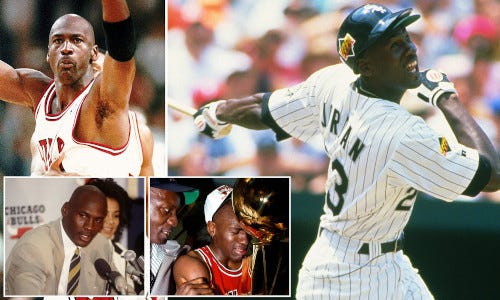
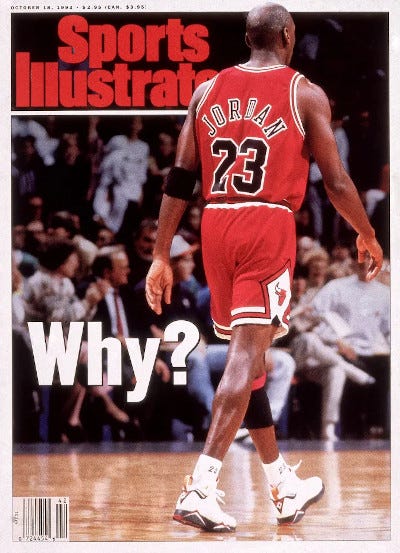


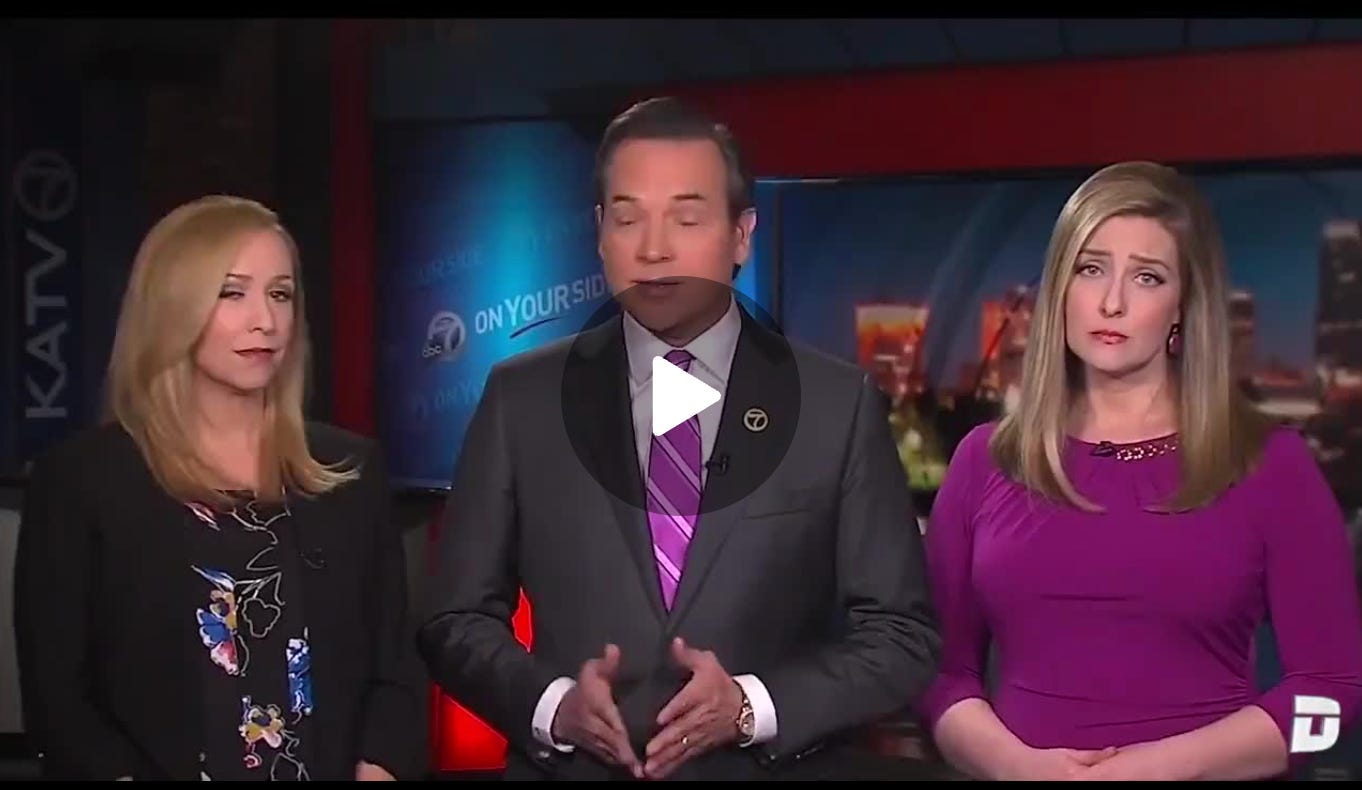
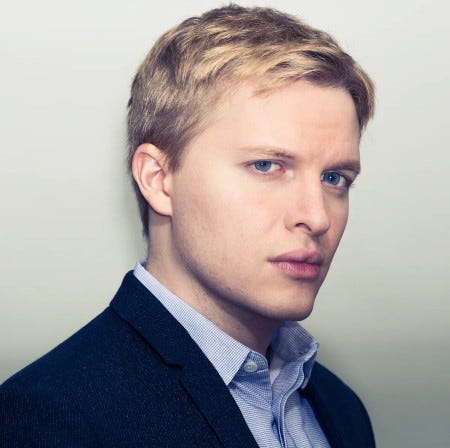
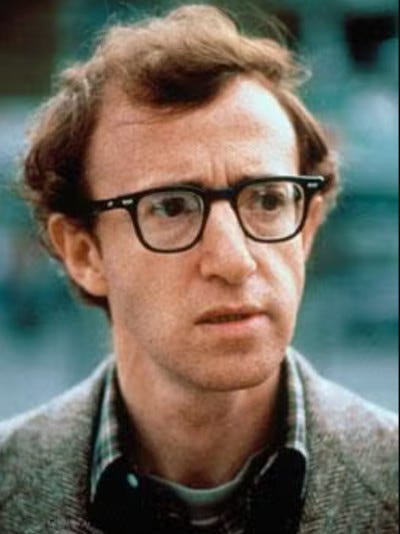
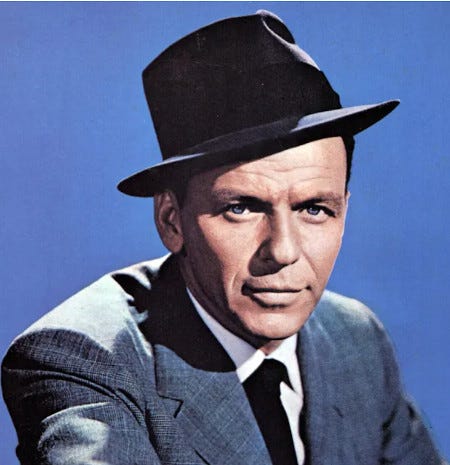
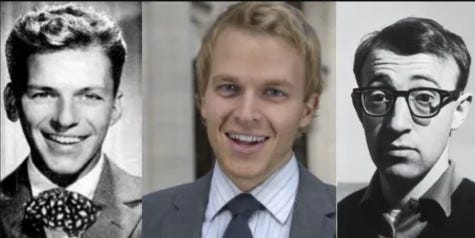
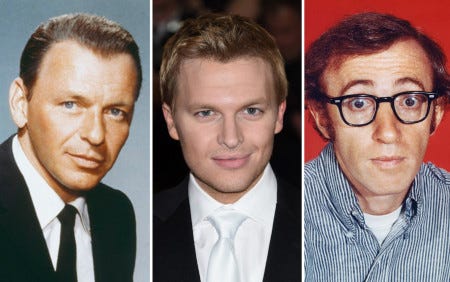






Comments
Post a Comment